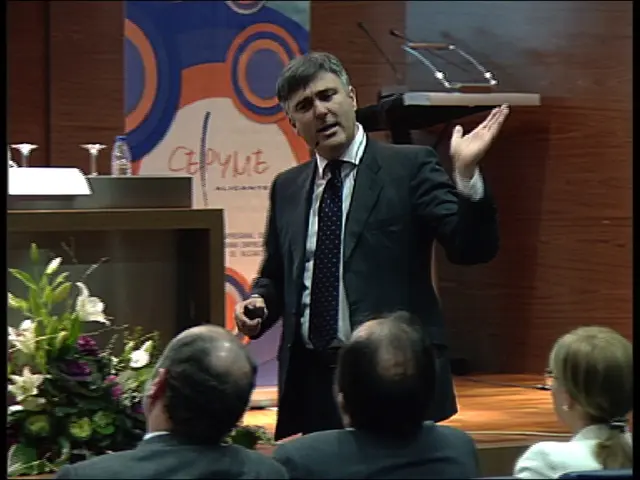What's the financial threshold for achieving contentment?
In Russia, happiness is not solely defined by financial stability. Psychologists and sociologists have found that emotional regulation, social connections, and cultural attitudes toward emotional expression and leisure play significant roles in shaping the nation's overall well-being.
Research on Russian migrants suggests that moments of personal crisis and the ability to manage emotions effectively are crucial for finding a meaningful lifestyle. This indicates that internal emotional processes have a strong impact on happiness [1].
Russian society, according to Hofstede's cultural dimensions, is characterized as a restrained culture, valuing self-control, duty, and adherence to social norms over open gratification of desires. This cultural framework means that happiness is often linked to fulfilling responsibilities and maintaining social order rather than pursuing immediate pleasure or leisure [2].
Strong social ties and being well-liked can enhance life satisfaction and reduce feelings of loneliness and anxiety, highlighting the importance of interpersonal relationships in happiness beyond economic factors [5].
Financial stability, including an adequate income and the absence of debts, is also a factor in determining happiness for Russians. However, only 2% of the population can live on passive income, and the majority (98%) do not belong to the wealthy 2% who earn more than 200,000 rubles per month [3]. An adequate income for most Russians, covering basic expenses and allowing for savings or leisure, is estimated to be around 200-250 thousand rubles per month in large cities, with less required in smaller ones [4].
Other factors contributing to happiness for Russians include access to quality education, mental health and self-confidence, stable employment and career prospects, satisfaction with living conditions, access to quality healthcare, having hobbies and interests, and the safety and comfort of living in the region [6].
In conclusion, happiness in Russia involves a balance between material wealth and personal fulfillment, with emotional regulation, social connections, and cultural attitudes playing significant roles. This balance is set within a cultural context that generally emphasizes restraint and duty rather than indulgence or instant gratification.
Read also:
- A Business Model Explained: Its Purpose and Benefits for Your Venture
- Deep-rooted reinforcement of Walkerhughes' acquisitions through strategic appointment of Alison Heitzman
- Unchecked Management of HP Dams Leads to Environmental Disaster: RTI Reveals
- Nordstrom taps prominent New York residents for their second advertising campaign in the city.





